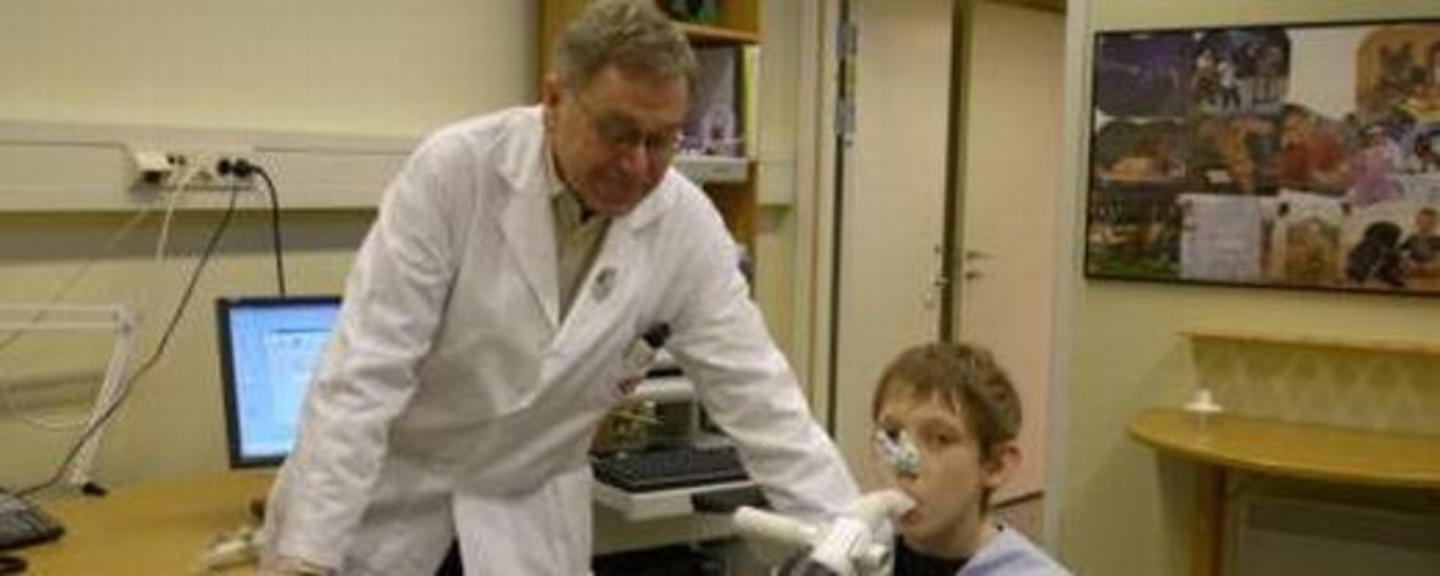Examining water vapour is the new frontier within the field of respiratory disease diagnostics. “Instead of blood or urine samples, the patient can breathe naturally into a mouth piece. The exhaled air of the patient is then cooled down to a liquid, and after 15 minutes of breathing you get 3-4 mm of condensate air from the lungs of the patient”, explained Andrzej Szczeklik, coordinator of the project and professor at the Jagellonian University School of Medicine in Poland.
As 99 percent of these droplets are water, it is the one percent left that interests the Polish and Norwegian researchers. “This one percent could contain chemical substances. Ideally, you would expect that certain diseases, such as asthma, would produce certain constellations of compounds, while other types would produce others,” he explained.
Szczeklik and his research team aim to identify the ‘fingerprints’ of different respiratory diseases. With 85-percent project funding from EEA Grants, totalling €622,000, the Polish and Norwegian researchers will sample and analyse breath condensates from children from both countries. “The methods used today are not sensitive enough, and so our first task when we start the project in April 2007 is to develop the techniques that would enable us to detect the chemical substances,” Szczeklik said, adding: “Afterwards we will use samples from patients where we are certain of their diagnosis, and examine the constellation of the compounds they exhale.”
The project went cross-border following personal contact in The European Allergy and Asthma Network between Szczeklik and Norwegian researcher Kai-Håkon Carlsen. “In our research group in Oslo we have ongoing projects on exhaled breath condensates based on children with asthma and other chronic lung diseases. When Szczeklik asked me to participate, I thought it would be of great interest”, said Carlsen, professor at the Voksentoppen Children's Asthma and Allergy Centre in Oslo.
Szczeklik underlined the importance of pooling together experiences within the project. “Sharing findings and drawing on each other’s expertise is what drives research forward, and it is also very motivating for the younger colleagues that will participate in this project to meet researchers from abroad,” he said.
News
16.10.2012
Breath tests are seen as a promising, non-intrusive way of disease detection, and a Polish-Norwegian research team is trying to develop this innovative method to enable discomfort–free lung examination.

PL0079 exhalation.jpg